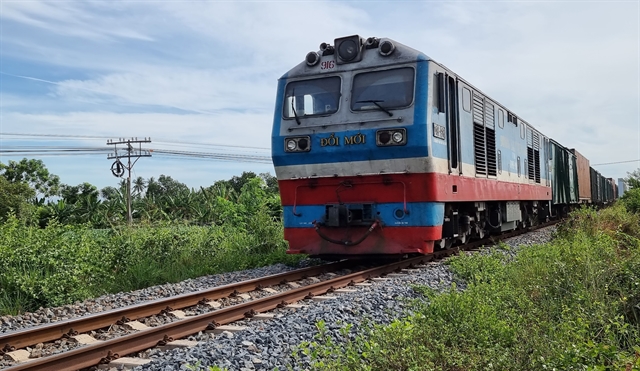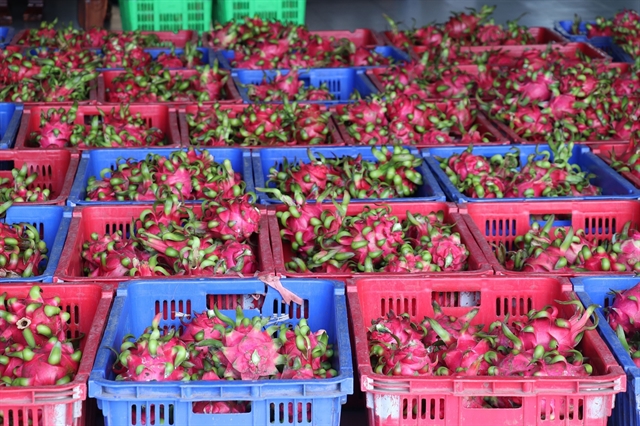 Economy
Economy
.jpg)
 |
| Dragon fruits are among products which are put under stricter control by the EU. Việt Nam received 57 warnings from the EU in the first half of this year, an increase by more than 80 per cent over the same period last year. — VNA/VNS Photo Hữu Trí |
HÀ NỘI — Many Việt Nam’s agricultural products have been placed under stricter food hygiene and safety controls by the European Union (EU) since the beginning of this year, according to Ngô Xuân Nam, Deputy Director of the Vietnam Sanitary and Phytosanitary Notification Authority and Enquiry Point (SPS Việt Nam).
Statistics indicate that Việt Nam received 57 warnings from the EU in the first half of this year, representing an increase of more than 80 per cent compared to the same period last year.
Nam spoke at a conference on strengthening commitments regarding SPS in the EU-Việt Nam Free Trade Agreement (EVFTA) and the Regional Comprehensive Economic Partnership (RCEP) on Friday. He noted that the increased warnings from the EU have led to a higher frequency of inspections at customs for agricultural products.
Currently, dragon fruits, chili and okra are under stricter control.
“The trend of increasing inspection might continue if we don’t implement appropriate solutions,” Nam said.
Countries and territories around the world have recently increased their control over food hygiene and safety, he added. Consumers are also showing a growing demand for safe products with traceable origins, responsibly sourced products, organic items, emission-reduction products, value-based products and green products.
It is vital for Vietnamese producers to improve product quality and ensure that food hygiene and safety meet the stringent standards of the EU markets, he said, urging enterprises to invest in studying the requirements of specific markets. — VNS
.jpg)



